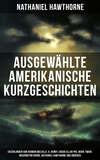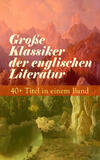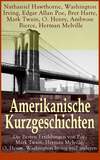Kitabı oku: «Complete Poetical Works», sayfa 7
Yazı tipi:
"THE BABES IN THE WOODS"
(BIG PINE FLAT, 1871)
"Something characteristic," eh?
Humph! I reckon you mean by that
Something that happened in our way,
Here at the crossin' of Big Pine Flat.
Times aren't now as they used to be,
When gold was flush and the boys were frisky,
And a man would pull out his battery
For anything—maybe the price of whiskey.
Nothing of that sort, eh? That's strange!
Why, I thought you might be diverted
Hearing how Jones of Red Rock Range
Drawed his "hint to the unconverted,"
And saying, "Whar will you have it?" shot
Cherokee Bob at the last debating!
What was the question I forgot,
But Jones didn't like Bob's way of stating.
Nothing of that kind, eh? You mean
Something milder? Let's see!—O Joe!
Tell to the stranger that little scene
Out of the "Babes in the Woods." You know,
"Babes" was the name that we gave 'em, sir,
Two lean lads in their teens, and greener
Than even the belt of spruce and fir
Where they built their nest, and each day grew leaner.
No one knew where they came from. None
Cared to ask if they had a mother.
Runaway schoolboys, maybe. One
Tall and dark as a spruce; the other
Blue and gold in the eyes and hair,
Soft and low in his speech, but rarely
Talking with us; and we didn't care
To get at their secret at all unfairly.
For they were so quiet, so sad and shy,
Content to trust each other solely,
That somehow we'd always shut one eye,
And never seem to observe them wholly
As they passed to their work. 'Twas a worn-out claim,
And it paid them grub. They could live without it,
For the boys had a way of leaving game
In their tent, and forgetting all about it.
Yet no one asked for their secret. Dumb
It lay in their big eyes' heavy hollows.
It was understood that no one should come
To their tent unawares, save the bees and swallows.
So they lived alone. Until one warm night
I was sitting here at the tent-door,—so, sir!
When out of the sunset's rosy light
Up rose the Sheriff of Mariposa.
I knew at once there was something wrong,
For his hand and his voice shook just a little,
And there isn't much you can fetch along
To make the sinews of Jack Hill brittle.
"Go warn the Babes!" he whispered, hoarse;
"Tell them I'm coming—to get and scurry;
For I've got a story that's bad,—and worse,
I've got a warrant: G-d d—n it, hurry!"
Too late! they had seen him cross the hill;
I ran to their tent and found them lying
Dead in each other's arms, and still
Clasping the drug they had taken flying.
And there lay their secret cold and bare,
Their life, their trial—the old, old story!
For the sweet blue eyes and the golden hair
Was a WOMAN'S shame and a WOMAN'S glory.
"Who were they?" Ask no more, or ask
The sun that visits their grave so lightly;
Ask of the whispering reeds, or task
The mourning crickets that chirrup nightly.
All of their life but its love forgot,
Everything tender and soft and mystic,
These are our Babes in the Woods,—you've got,
Well—human nature—that's characteristic.
THE LATEST CHINESE OUTRAGE
It was noon by the sun; we had finished our game,
And was passin' remarks goin' back to our claim;
Jones was countin' his chips, Smith relievin' his mind
Of ideas that a "straight" should beat "three of a kind,"
When Johnson of Elko came gallopin' down,
With a look on his face 'twixt a grin and a frown,
And he calls, "Drop your shovels and face right about,
For them Chinees from Murphy's are cleanin' us out—
With their ching-a-ring-chow
And their chic-colorow
They're bent upon making
No slouch of a row."
Then Jones—my own pardner—looks up with a sigh;
"It's your wash-bill," sez he, and I answers, "You lie!"
But afore he could draw or the others could arm,
Up tumbles the Bates boys, who heard the alarm.
And a yell from the hill-top and roar of a gong,
Mixed up with remarks like "Hi! yi! Chang-a-wong,"
And bombs, shells, and crackers, that crashed through the trees,
Revealed in their war-togs four hundred Chinees!
Four hundred Chinee;
We are eight, don't ye see!
That made a square fifty
To just one o' we.
They were dressed in their best, but I grieve that that same
Was largely made up of our own, to their shame;
And my pardner's best shirt and his trousers were hung
On a spear, and above him were tauntingly swung;
While that beggar, Chey Lee, like a conjurer sat
Pullin' out eggs and chickens from Johnson's best hat;
And Bates's game rooster was part of their "loot,"
And all of Smith's pigs were skyugled to boot;
But the climax was reached and I like to have died
When my demijohn, empty, came down the hillside,—
Down the hillside—
What once held the pride
Of Robertson County
Pitched down the hillside!
Then we axed for a parley. When out of the din
To the front comes a-rockin' that heathen, Ah Sin!
"You owe flowty dollee—me washee you camp,
You catchee my washee—me catchee no stamp;
One dollar hap dozen, me no catchee yet,
Now that flowty dollee—no hab?—how can get?
Me catchee you piggee—me sellee for cash,
It catchee me licee—you catchee no 'hash;'
Me belly good Sheliff—me lebbee when can,
Me allee same halp pin as Melican man!
But Melican man
He washee him pan
On BOTTOM side hillee
And catchee—how can?"
"Are we men?" says Joe Johnson, "and list to this jaw,
Without process of warrant or color of law?
Are we men or—a-chew!"—here be gasped in his speech,
For a stink-pot had fallen just out of his reach.
"Shall we stand here as idle, and let Asia pour
Her barbaric hordes on this civilized shore?
Has the White Man no country? Are we left in the lurch?
And likewise what's gone of the Established Church?
One man to four hundred is great odds, I own,
But this 'yer's a White Man—I plays it alone!"
And he sprang up the hillside—to stop him none dare—
Till a yell from the top told a "White Man was there!"
A White Man was there!
We prayed he might spare
Those misguided heathens
The few clothes they wear.
They fled, and he followed, but no matter where;
They fled to escape him,—the "White Man was there,"—
Till we missed first his voice on the pine-wooded slope,
And we knew for the heathen henceforth was no hope;
And the yells they grew fainter, when Petersen said,
"It simply was human to bury his dead."
And then, with slow tread,
We crept up, in dread,
But found nary mortal there,
Living or dead.
But there was his trail, and the way that they came,
And yonder, no doubt, he was bagging his game.
When Jones drops his pickaxe, and Thompson says "Shoo!"
And both of 'em points to a cage of bamboo
Hanging down from a tree, with a label that swung
Conspicuous, with letters in some foreign tongue,
Which, when freely translated, the same did appear
Was the Chinese for saying, "A White Man is here!"
And as we drew near,
In anger and fear,
Bound hand and foot, Johnson
Looked down with a leer!
In his mouth was an opium pipe—which was why
He leered at us so with a drunken-like eye!
They had shaved off his eyebrows, and tacked on a cue,
They had painted his face of a coppery hue,
And rigged him all up in a heathenish suit,
Then softly departed, each man with his "loot."
Yes, every galoot,
And Ah Sin, to boot,
Had left him there hanging
Like ripening fruit.
At a mass meeting held up at Murphy's next day
There were seventeen speakers and each had his say;
There were twelve resolutions that instantly passed,
And each resolution was worse than the last;
There were fourteen petitions, which, granting the same,
Will determine what Governor Murphy's shall name;
And the man from our district that goes up next year
Goes up on one issue—that's patent and clear:
"Can the work of a mean,
Degraded, unclean
Believer in Buddha
Be held as a lien?"
TRUTHFUL JAMES TO THE EDITOR
(YREKA, 1873)
Which it is not my style
To produce needless pain
By statements that rile
Or that go 'gin the grain,
But here's Captain Jack still a-livin', and Nye has no skelp on his
brain!
On that Caucasian head
There is no crown of hair;
It has gone, it has fled!
And Echo sez "Where?"
And I asks, "Is this Nation a White Man's, and is generally things
on the square?"
She was known in the camp
As "Nye's other squaw,"
And folks of that stamp
Hez no rights in the law,
But is treacherous, sinful, and slimy, as Nye might hev well known
before.
But she said that she knew
Where the Injins was hid,
And the statement was true,
For it seemed that she did,
Since she led William where he was covered by seventeen Modocs, and—
slid!
Then they reached for his hair;
But Nye sez, "By the law
Of nations, forbear!
I surrenders—no more:
And I looks to be treated,—you hear me?—as a pris'ner, a pris'ner
of war!"
But Captain Jack rose
And he sez, "It's too thin!
Such statements as those
It's too late to begin.
There's a MODOC INDICTMENT agin you, O Paleface, and you're goin' in!
"You stole Schonchin's squaw
In the year sixty-two;
It was in sixty-four
That Long Jack you went through,
And you burned Nasty Jim's rancheria, and his wives and his papooses
too.
"This gun in my hand
Was sold me by you
'Gainst the law of the land,
And I grieves it is true!"
And he buried his face in his blanket and wept as he hid it from view.
"But you're tried and condemned,
And skelping's your doom,"
And he paused and he hemmed—
But why this resume?
He was skelped 'gainst the custom of nations, and cut off like a rose
in its bloom.
So I asks without guile,
And I trusts not in vain,
If this is the style
That is going to obtain—
If here's Captain Jack still a-livin', and Nye with no skelp on his
brain?
AN IDYL OF THE ROAD
(SIERRAS, 1876)
DRAMATIS PERSONAE
First Tourist
Second Tourist
Yuba Bill, Driver
A Stranger
FIRST TOURIST
Look how the upland plunges into cover,
Green where the pines fade sullenly away.
Wonderful those olive depths! and wonderful, moreover—
SECOND TOURIST
The red dust that rises in a suffocating way.
FIRST TOURIST
Small is the soul that cannot soar above it,
Cannot but cling to its ever-kindred clay:
Better be yon bird, that seems to breathe and love it—
SECOND TOURIST
Doubtless a hawk or some other bird of prey.
Were we, like him, as sure of a dinner
That on our stomachs would comfortably stay;
Or were the fried ham a shade or two just thinner,
That must confront us at closing of the day:
Then might you sing like Theocritus or Virgil,
Then might we each make a metrical essay;
But verse just now—I must protest and urge—ill
Fits a digestion by travel led astray.
CHORUS OF PASSENGERS
Speed, Yuba Bill! oh, speed us to our dinner!
Speed to the sunset that beckons far away.
SECOND TOURIST
William of Yuba, O Son of Nimshi, hearken!
Check thy profanity, but not thy chariot's play.
Tell us, O William, before the shadows darken,
Where, and, oh! how we shall dine? O William, say!
YUBA BILL
It ain't my fault, nor the Kumpeney's, I reckon,
Ye can't get ez square meal ez any on the Bay,
Up at you place, whar the senset 'pears to beckon—
Ez thet sharp allows in his airy sort o' way.
Thar woz a place wor yer hash ye might hev wrestled,
Kept by a woman ez chipper ez a jay—
Warm in her breast all the morning sunshine nestled;
Red on her cheeks all the evening's sunshine lay.
SECOND TOURIST
Praise is but breath, O chariot compeller!
Yet of that hash we would bid you farther say.
YUBA BILL
Thar woz a snipe—like you, a fancy tourist—
Kem to that ranch ez if to make a stay,
Ran off the gal, and ruined jist the purist
Critter that lived—
STRANGER (quietly)
You're a liar, driver!
YUBA BILL (reaching for his revolver).
Eh!
Here take my lines, somebody—
CHORUS OF PASSENGERS
Hush, boys! listen!
Inside there's a lady! Remember! No affray!
YUBA BILL
Ef that man lives, the fault ain't mine or his'n.
STRANGER
Wait for the sunset that beckons far away,
Then—as you will! But, meantime, friends, believe me,
Nowhere on earth lives a purer woman; nay,
If my perceptions do surely not deceive me,
She is the lady we have inside to-day.
As for the man—you see that blackened pine tree,
Up which the green vine creeps heavenward away!
He was that scarred trunk, and she the vine that sweetly
Clothed him with life again, and lifted—
SECOND TOURIST
Yes; but pray
How know you this?
STRANGER
She's my wife.
YUBA BILL
The h-ll you say!
THOMPSON OF ANGELS
It is the story of Thompson—of Thompson, the hero of Angels.
Frequently drunk was Thompson, but always polite to the stranger;
Light and free was the touch of Thompson upon his revolver;
Great the mortality incident on that lightness and freedom.
Yet not happy or gay was Thompson, the hero of Angels;
Often spoke to himself in accents of anguish and sorrow,
"Why do I make the graves of the frivolous youth who in folly
Thoughtlessly pass my revolver, forgetting its lightness and freedom?
"Why in my daily walks does the surgeon drop his left eyelid,
The undertaker smile, and the sculptor of gravestone marbles
Lean on his chisel and gaze? I care not o'er much for attention;
Simple am I in my ways, save but for this lightness and freedom."
So spake that pensive man—this Thompson, the hero of Angels,
Bitterly smiled to himself, as he strode through the chapparal musing.
"Why, oh, why?" echoed the pines in the dark olive depth far
resounding.
"Why, indeed?" whispered the sage brush that bent 'neath his feet
non-elastic.
Pleasant indeed was that morn that dawned o'er the barroom at Angels,
Where in their manhood's prime was gathered the pride of the hamlet.
Six "took sugar in theirs," and nine to the barkeeper lightly
Smiled as they said, "Well, Jim, you can give us our regular fusil."
Suddenly as the gray hawk swoops down on the barnyard, alighting
Where, pensively picking their corn, the favorite pullets are
gathered,
So in that festive bar-room dropped Thompson, the hero of Angels,
Grasping his weapon dread with his pristine lightness and freedom.
Never a word he spoke; divesting himself of his garments,
Danced the war-dance of the playful yet truculent Modoc,
Uttered a single whoop, and then, in the accents of challenge,
Spake: "Oh, behold in me a Crested Jay Hawk of the mountain."
Then rose a pallid man—a man sick with fever and ague;
Small was he, and his step was tremulous, weak, and uncertain;
Slowly a Derringer drew, and covered the person of Thompson;
Said in his feeblest pipe, "I'm a Bald-headed Snipe of the Valley."
As on its native plains the kangaroo, startled by hunters,
Leaps with successive bounds, and hurries away to the thickets,
So leaped the Crested Hawk, and quietly hopping behind him
Ran, and occasionally shot, that Bald-headed Snipe of the Valley.
Vain at the festive bar still lingered the people of Angels,
Hearing afar in the woods the petulant pop of the pistol;
Never again returned the Crested Jay Hawk of the mountains,
Never again was seen the Bald-headed Snipe of the Valley.
Yet in the hamlet of Angels, when truculent speeches are uttered,
When bloodshed and life alone will atone for some trifling
misstatement,
Maidens and men in their prime recall the last hero of Angels,
Think of and vainly regret the Bald-headed Snipe of the Valley!
THE HAWK'S NEST
(SIERRAS)
We checked our pace, the red road sharply rounding;
We heard the troubled flow
Of the dark olive depths of pines resounding
A thousand feet below.
Above the tumult of the canyon lifted,
The gray hawk breathless hung,
Or on the hill a winged shadow drifted
Where furze and thorn-bush clung;
Or where half-way the mountain side was furrowed
With many a seam and scar;
Or some abandoned tunnel dimly burrowed,—
A mole-hill seen so far.
We looked in silence down across the distant
Unfathomable reach:
A silence broken by the guide's consistent
And realistic speech.
"Walker of Murphy's blew a hole through Peters
For telling him he lied;
Then up and dusted out of South Hornitos
Across the Long Divide.
"We ran him out of Strong's, and up through Eden,
And 'cross the ford below,
And up this canyon (Peters' brother leadin'),
And me and Clark and Joe.
"He fou't us game: somehow I disremember
Jest how the thing kem round;
Some say 'twas wadding, some a scattered ember
From fires on the ground.
"But in one minute all the hill below him
Was just one sheet of flame;
Guardin' the crest, Sam Clark and I called to him,
And,—well, the dog was game!
"He made no sign: the fires of hell were round him,
The pit of hell below.
We sat and waited, but we never found him;
And then we turned to go.
"And then—you see that rock that's grown so bristly
With chapparal and tan—
Suthin crep' out: it might hev been a grizzly
It might hev been a man;
"Suthin that howled, and gnashed its teeth, and shouted
In smoke and dust and flame;
Suthin that sprang into the depths about it,
Grizzly or man,—but game!
"That's all! Well, yes, it does look rather risky,
And kinder makes one queer
And dizzy looking down. A drop of whiskey
Ain't a bad thing right here!"
HER LETTER
I'm sitting alone by the fire,
Dressed just as I came from the dance,
In a robe even YOU would admire,—
It cost a cool thousand in France;
I'm be-diamonded out of all reason,
My hair is done up in a cue:
In short, sir, "the belle of the season"
Is wasting an hour upon you.
A dozen engagements I've broken;
I left in the midst of a set;
Likewise a proposal, half spoken,
That waits—on the stairs—for me yet.
They say he'll be rich,—when he grows up,—
And then he adores me indeed;
And you, sir, are turning your nose up,
Three thousand miles off as you read.
"And how do I like my position?"
"And what do I think of New York?"
"And now, in my higher ambition,
With whom do I waltz, flirt, or talk?"
"And isn't it nice to have riches,
And diamonds and silks, and all that?"
"And aren't they a change to the ditches
And tunnels of Poverty Flat?"
Well, yes,—if you saw us out driving
Each day in the Park, four-in-hand,
If you saw poor dear mamma contriving
To look supernaturally grand,—
If you saw papa's picture, as taken
By Brady, and tinted at that,
You'd never suspect he sold bacon
And flour at Poverty Flat.
And yet, just this moment, when sitting
In the glare of the grand chandelier,—
In the bustle and glitter befitting
The "finest soiree of the year,"—
In the mists of a gaze de Chambery,
And the hum of the smallest of talk,—
Somehow, Joe, I thought of the "Ferry,"
And the dance that we had on "The Fork;"
Of Harrison's barn, with its muster
Of flags festooned over the wall;
Of the candles that shed their soft lustre
And tallow on head-dress and shawl;
Of the steps that we took to one fiddle,
Of the dress of my queer vis-a-vis;
And how I once went down the middle
With the man that shot Sandy McGee;
Of the moon that was quietly sleeping
On the hill, when the time came to go;
Of the few baby peaks that were peeping
From under their bedclothes of snow;
Of that ride—that to me was the rarest;
Of—the something you said at the gate.
Ah! Joe, then I wasn't an heiress
To "the best-paying lead in the State."
Well, well, it's all past; yet it's funny
To think, as I stood in the glare
Of fashion and beauty and money,
That I should be thinking, right there,
Of some one who breasted high water,
And swam the North Fork, and all that,
Just to dance with old Folinsbee's daughter,
The Lily of Poverty Flat.
But goodness! what nonsense I'm writing!
(Mamma says my taste still is low),
Instead of my triumphs reciting,
I'm spooning on Joseph,—heigh-ho!
And I'm to be "finished" by travel,—
Whatever's the meaning of that.
Oh, why did papa strike pay gravel
In drifting on Poverty Flat?
Good-night!—here's the end of my paper;
Good-night!—if the longitude please,—
For maybe, while wasting my taper,
YOUR sun's climbing over the trees.
But know, if you haven't got riches,
And are poor, dearest Joe, and all that,
That my heart's somewhere there in the ditches,
And you've struck it,—on Poverty Flat.
Türler ve etiketler
Yaş sınırı:
0+Litres'teki yayın tarihi:
07 mayıs 2019Hacim:
230 s. 1 illüstrasyonTelif hakkı:
Public Domain









